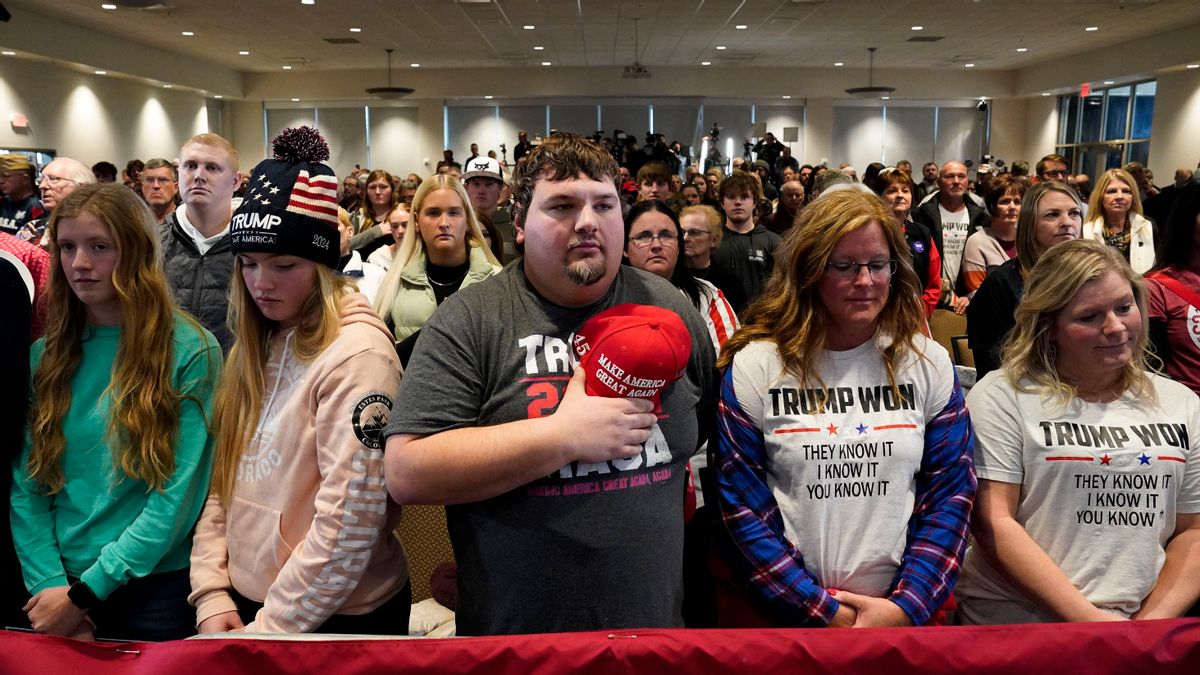On Jan. 15, 2024, former U.S. President Donald Trump cruised to a record-setting win in the Republican Iowa caucuses. The victory was a first step toward his potential reelection, in which, if selected as the party's nominee, he would face off against the Democratic incumbent, U.S. President Joe Biden, in a repeat of the 2020 election.
On the evening of the caucuses, just as Trump was giving his victory speech in Des Moines, a user on X posted the claim that half of the participants had voted "against" him.
For example, X user Victor Shi posted that "half of caucus goers voted against [Trump]." Shi is the strategy director for the youth-led politics and government organization Voters of Tomorrow. He also was the youngest delegate for then-U.S. presidential candidate Joe Biden at the 2020 Democratic National Convention, according to Politico.com.
Another user, @DogginTrump, who showed the display name of "WTFGOP," claimed, "I think the real story tonight is Trump only got 52,000 votes and the other candidates got a total of 49,000. He can't win with these numbers."
Here are the facts: According to The New York Times, with more than 95 percent of the numbers in from the Iowa caucuses, Trump received 56,260 votes. His votes accounted for about 51 percent of the total votes cast.
Meanwhile, the remaining 54,038 votes (roughly 49 percent) were cast for other candidates. Florida Gov. Ron DeSantis placed second with 23,420 votes, former South Carolina Gov. Nikki Haley brought in 21,085 votes and the additional 9,533 votes were mostly cast for entrepreneur Vivek Ramaswamy.
Shi's post claimed that half of caucus-goers therefore voted "against" Trump. While it's true that just under half of the votes were cast for candidates other than Trump, semantically, that is not necessarily the same thing as saying all of the 54,038 voters who chose other candidates cast their votes against Trump. There simply isn't data to support that conclusion.
Further, in @DogginTrump's post, the user said that Trump "can't win" given the way that the votes were split. To put this theory to the test with the best available data, we turned to the year 2016 – the same year Trump ultimately won the U.S. presidential election.
In the 2016 Republican Iowa caucuses, 186,874 total votes were cast. The caucuses that year were spared a winter snowstorm that began just hours after votes were done being cast.
Meanwhile, the year 2024 saw a lower turnout of 110,298 total voters. Caucus-goers who cast their votes braved both snow and cold temperatures.
U.S. Sen. Ted Cruz won the 2016 caucuses with 51,666 votes. Trump placed second with 45,427 votes. Compare Trump's tally from 2016 to his 56,260 votes eight years later and 2024 begins to look like a "commanding" win – a term used in reporting from The Associated Press. At the same time, however, it's possible that the lower total voter turnout for the 2024 caucuses could be somewhat of a concerning data point for the Republican frontrunner – cold weather factored in or not.
Basically, as of January 2024, no matter how much data is studied, it's way too early to predict how the November election will end.
For more information, we recommend our reporting about a false rumor that was featured in the same post from Shi that claimed Trump's win in the 2024 Iowa caucuses was the smallest margin of victory of any GOP candidate in history.
